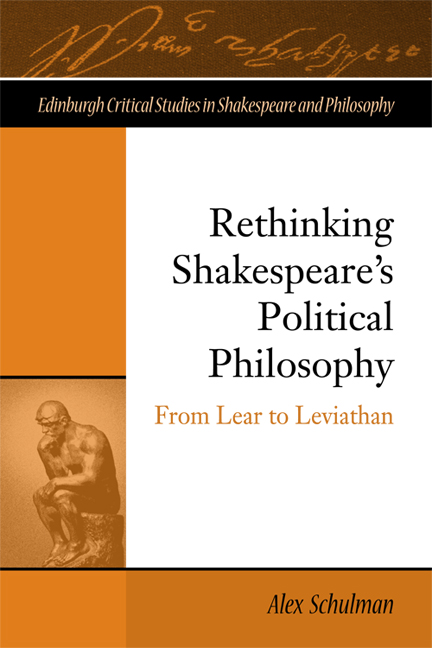2 - Pagan Christs: Politics in the Roman Plays
from I - SHAKESPEAREAN ANTIQUITY
Published online by Cambridge University Press: 05 August 2016
Summary
… if greatness of spirit were detached from sociability, and from the bonding between humans, it would become a kind of brutal savagery.
Cicero… those rulers’ virtues that master even one's benevolence and pity … the Roman Caesar with Christ's soul.
NietzscheChapter 1 argued Ulysses’ transvaluation of traditional Homeric values, despite being intended to serve hierarchical and collectivist goals, called forth nightmarish intimations of its own negation, the ‘universal wolf’. These were embodied, in different ways and to various degrees, by scabrous Thersites and Pandarus; the proto-Hobbesian rupture I identified in the Trojan debate; and Cressida's contextually-impelled pragmatism about love and sex. Shakespeare's last play, Two Noble Kinsmen– its story also borrowed from Chaucer, thematically similar but tonally different – was read to suggest that his final version of a satisfactory Athenian politics was one where the deceptive or mythmaking element in Platonism had become dominant. Moving from Greece to Rome, new values come forward. In a sense they are the values of Cressida and Thersites, who affirmed pragmatic bodily goods over Platonic über-concepts (eternal love, honour). But Cressida and Thersites were solitary and weak: a captive bride, a slave. In Rome such values are backed with collective power, though still regarded warily by the more recalcitrant elites. Isolated resistances to traditional structures of domination in Troilus and Cressida, in the Roman plays they are a fullyfledged political theory of civic virtue, commonwealth, popular will. The Greek model would be Aristotle's pro-democratic critique of Plato; its influence on the Renaissance owed as much to the languages of Roman republicanism.
‘What distinguishes the early modern period’, writes Eric Nelson, is ‘the astonishing degree’ to which political writers asked questions about the virtuous commonwealth via ancient Rome. ‘To compare the relative merits of monarchy and civic self-government … was unavoidably to ask whether Rome had reached its zenith before or after the rise of the Caesars.’ Shakespeare's first tragedy, Titus Andronicus, begins with a dispute between lineage, military success and popular acclaim as legitimations of Roman imperial succession (I, i, 1–62). Under Renaissance monarchy, classical antiquity was a safe distance from which to examine popular participation and resistance to tyranny.
- Type
- Chapter
- Information
- Rethinking Shakespeare's Political PhilosophyFrom Lear to Leviathan, pp. 55 - 94Publisher: Edinburgh University PressPrint publication year: 2014



